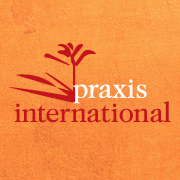Calling 911 emergency services is often seen as a lifeline for survivors of battering. However, the risks to a survivor when law enforcement intervenes can be significant. A batterer can easily turn the system against the victim or punish the victim because law enforcement got involved. Survivors of ongoing abuse who physically defend themselves are far too commonly arrested. The costs of punishment from the batterer or an arrest can be high: unemployment, loss of housing, risk to immigration status, and concerns about children, to name a few. Survivors can benefit greatly from support, information and advocacy as soon as possible following law enforcement intervention, yet many advocacy programs do not have a protocol in place in their communities that connects with survivors immediately following a law enforcement intervention.
Implementing an advocacy-initiated response (AIR) can provide critical information about upcoming court processes, resources available to help with court proceedings, access to civil legal remedies, and support available for coping with other aspects of life affected by a batterer’s behavior. A confidential advocate can help survivors in ways no one else can – from making sure they understand their rights in the criminal legal process to helping them evaluate additional risks they may face because of criminal legal intervention. Proactively reaching out to survivors at this highly stressful time, with confidential advocacy, can increase safety and produce better outcomes for survivors.
This Make the Call Toolkit offers a free, on-demand resource for advocacy programs to explore, adapt, and implement the AIR model to connect victims of battering with community-based advocacy as soon as possible after law enforcement has responded to a domestic violence 911 call. Use it to learn about the model and consider key questions for advocacy programs exploring whether and how to implement AIR. It will take 20-30 minutes to read the content, and you can watch 12 short videos (each approximately a minute and a half in length). You can also link to research, articles, and other resources to increase your knowledge and capacity. At the end, you will find templates for policies and procedures to adapt to your own area. Praxis is also available to help if you want individual support to implement AIR in your community. We have supported many rural advocacy programs implement AIR in their communities.
Use the links on the left to navigate the toolkit, review strategies for approaching law enforcement, listen to advocates talk about their experiences with AIR, and download the complete procedures manual for advocacy programs to implement AIR. Utilize the blue, underlined hyperlinks in the content of the toolkit to navigate to external resources and additional information.
Acknowledgements
The original version of Make the Call was developed and published in 2018 by Praxis International in partnership with our long-time colleague, Rose Thelen, Gender Violence Institute, who originally conceived and initiated a manual for advocacy programs on how to implement AIR. We have since reviewed and updated the Toolkit to include direction and clarity regarding language access and legal remedies for immigration status concerns. We are extremely grateful to our project partners, Rafaela Rodrigues and Leslye E. Orloff of the National Immigrant Women’s Advocacy Project for their review and editorial assistance regarding immigrant survivors’ needs and Wendy Lau of the Asian and Pacific Islander Institute on Gender Based Violence for her review and editorial assistance on language access.
Maren Woods, Praxis Program Manager, developed the online toolkit with contributions by Praxis International staff Denise Eng and Julie “Tilly” Tilley, along with Liz Carlson who lead creation of the website layout and design.
Thank you to the following advocates for permission to use their voices and experiences in implementing AIR: Heather Addison, Blueprint Advocate, Marquette, MI; Stephanie Avalon, Battered Women’s Justice Project, Minneapolis, MN; Kim Bruce, Shelterhouse, Midland, MI; Kathleen Marvin, Tillamook Women’s Resource Center, Tillamook, OR; and Rose Thelen, Gender Violence Institute, Clearwater, MN.
Much gratitude to Carol Schrader and Jessie Mindlin, Victim Rights Law Center, for their thorough review and extensive discussions around privacy, confidentiality, and information-sharing practices.
We greatly appreciate support from the Office on Violence Against Women, U.S. Department of Justice, who provided funding to produce the toolkit.
Finally, this toolkit is dedicated to victims of battering everywhere who wanted and needed support after law enforcement response. May their needs be met, may their questions be answered, may they flourish and live free of violence.
This project is supported by Grant #2015-TA-AX-K057 awarded by the Office on Violence Against Women, U.S. Department of Justice. The opinions, findings, conclusions and recommendations expressed during this presentation are those of the presenter(s) and do not necessarily reflect the views of the U.S. Department of Justice.
